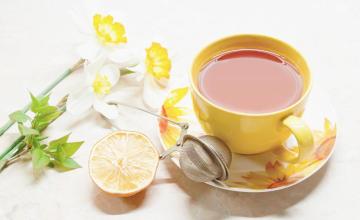A brief introduction to the description of the flavor and aroma characteristics of Kenyan Jinchu boutique coffee

It has wonderful and satisfying aromas, well-balanced acidity, well-proportioned particles and excellent fruit flavors. The taste is so unique that there is almost no similar coffee. Kenyan coffee is characterized by a distinctive fruity aroma. Try to find this flavor in the coffee and pay attention to how it feels in the mouth. One of the common fruit aromas is citrus. Kenyan coffee has a multi-layered taste and juice acidity, perfect grapefruit and wine flavor, medium mellowness, Kenyan coffee mostly grows at an altitude of 1500Murray 2100 meters and is harvested twice a year. To ensure that only ripe berries are picked, people must tour the forest about seven times. Kenyan coffee is grown by small farmers. After they harvest the coffee, they first send the fresh coffee beans to the cooperative cleaning station. The washing station sends the dried coffee to the cooperative in the form of "parchment coffee beans" (that is, coffee beans covered with endocarp) to the cooperative ("parchment coffee beans" is the last state of coffee beans before peeling). All the coffee is collected together, and the growers charge the average price according to their actual quality. This trading method generally works well, fair to growers and consumers, fragrant, full-bodied, with fruit flavor, rich and perfect taste. Kenyan coffee has a wonderful fruit flavor, tastes like BlackBerry and grapefruit, and is a favorite of many coffee gluttons. This coffee has an excellent medium purity, crisp and refreshing taste. It has a fresh flavor and is most suitable for drinking iced coffee in summer. When tasting this coffee, if it is paired with sour fruits such as grapefruit, it will certainly give me the best coffee experience. "not much like coffee, but a bit like fruit tea" is the common feeling of many people about this kind of shallow roasted Kenyan coffee.
Asia from the Gichugu production area of Enbu processing plant (Embu Washing Station), using Kenyan-style double washing treatment, growing in 1550-1750 Kenya mountains in the eastern slopes of Manyata-Enbu County, the variety is Kenya's classic SL28,SL34, coupled with the deceived day and night temperature difference, and Kenya's red phosphate soil, make sweet and sour into this Kenyan secondary flavor tone. Jinchugu was founded in 1970. Together with Kamviu, Gakundu and Ka Kui washing Plant, they formed the Gakundu Farmers' Cooperative. There are 980 coffee farmers in Jinchu Valley and 3600 small farmers are registered in the whole cooperative. In Enbu county, nearly 85% of coffee cultivation comes from small farmers. They picked the ripe coffee fruit and sent it to the washing station for centralized treatment. the coffee fruit was peeled in the Enbu processing plant, fermented overnight, washed and dried naturally in an elevated shed.
Product name: AA TOP of Jinchu Valley, Kenya
English: Kenya Gichugu Embu AA TOP
Producing area: Jinchu Valley (Gichugu Division,Kirinyaga East District)
Consumer: Enbu processing Plant (Embu Washing Station)
Treatment method: Kenyan double washing treatment
Altitude: over 1550-1750 m
Variety: SL28,SL34
Baking degree: medium and shallow baking
Flavor: Cherry, black plum, honey, BlackBerry, Sugar cane juice, sour red wine
The Kenyan national emblem established in 1963 centers on a shuttle-shaped shield emblem consistent with the national flag, with a golden lion on each side, a spear and a shield emblem. The white rooster with an axe in the back is the emblem of the African National Union of Kenya. According to the local tradition, the rooster symbolizes the new life. The two lions embody national sovereignty and national dignity, as well as the ties between Kenya and Britain. Under the feet of the two lions is the Kenyan volcano, the second largest mountain in Africa. It treads on fertile land, covered with coffee, oranges, sisal tea, corn and pineapple, and is full of fruit and fragrance. This is a microcosm of the peaceful life of the Kenyan people and the prosperity of the country. The brown ribbon under the national emblem is marked with the word "coexistence" in Swahili, expressing the desire of the Kenyan people for peace, fraternity, freedom and equality. Kenya maintains a presidential system of government. Since independence, the Kenyan League has been in power for a long time. After changing to a multi-party system in 1991, the Kenyan League won two consecutive multi-party elections in 1992 and 1997, and Moi was re-elected president. In the third multi-party general election held in December 2002, the opposition coalition National Rainbow Alliance (all League) defeated the Kenya League, Kibaki was elected president, and the League won a majority of seats in parliament. After the general election in December 2007, national riots were caused by disputes over the election results between the ruling National Unity Party and the opposition Orange Democratic Movement. Under the mediation of former UN Secretary General Kofi Annan, the two parties to the dispute signed the Agreement on the principles of Partnership of the Coalition Government on February 28, 2008 and formed a coalition government on April 13. The leader of the ruling party, Mwai Kibaki, is president, and the leader of the opposition, Odinga, is the new prime minister. In March 2013, Kenya held a new general election, "Jubilee Alliance" candidate Kenyatta defeated the "Alliance for Reform and Democracy" candidate Odinga, was elected the fourth president of Kenya. On April 9, Kenyatta was sworn in as the National Assembly, which was established in 1963. It is the highest legislature in Kenya and has implemented a unicameral system for a long time. The new constitution in 2010 provides for the addition of a Senate. After the general election in March 2013, the 11th Parliament, composed of the Senate and House of Representatives, was formed with a five-year term of office.
The House of Representatives is composed of the Speaker of the House of Representatives and 349 members, including 290 elected members, 47 elected women representatives representing 47 counties and 12 designated members (distributed according to the proportion of seats in the National Assembly). The Speaker of the House of Representatives and the Deputy Speaker of the House of Representatives are nominated by each party from non-members and members of their own party respectively and elected by all members of the House of Representatives. The largest political party or coalition leader in the House of Representatives is the majority leader, and the second largest political party or coalition leader is the minority leader. The main functions of the House of Representatives are: legislating, determining the distribution of national taxes, supervising state expenditure, supervising the government, approving wars and extending the state of emergency, impeaching the president and vice president, approving important presidential appointments, and so on. The speaker of the House of Representatives is Muturi of the Jubilee Alliance
People in the coffee industry all think that Kenyan coffee is one of its favorite products because Kenyan coffee contains every feeling we want from a good cup of coffee.
Important Notice :
前街咖啡 FrontStreet Coffee has moved to new addredd:
FrontStreet Coffee Address: 315,Donghua East Road,GuangZhou
Tel:020 38364473
- Prev

A brief introduction to the History and Culture of the Origin and Development of slightly sour boutique Coffee in Jinchu Valley of Kenya
How did the French missionary bourbon come from? I believe many people will have great doubts about this. Cat Ye will popularize this French missionary bourbon species for you today. Let's first look at the island of Bourbon in eastern Madagascar on the east coast of Africa. In 1646, the island became a French colony and was named Bourbon to show off the power of the French Bourbon dynasty.
- Next

Kenyan Jinchu Valley Fine Coffee Variety Planting Market Price Profile
This coffee has an excellent medium purity, crisp and refreshing taste. Fresh flavor and best for iced coffee in summer. When tasting this coffee, if it is accompanied by fruit with acidity such as grapefruit, it will definitely give me the best coffee experience. It's not coffee, it's fruit tea, and that's what many people feel about this light roast Kenyan coffee. In addition to having obvious and
Related
- Detailed explanation of Jadeite planting Land in Panamanian Jadeite Manor introduction to the grading system of Jadeite competitive bidding, Red bid, Green bid and Rose Summer
- Story of Coffee planting in Brenka region of Costa Rica Stonehenge Manor anaerobic heavy honey treatment of flavor mouth
- What's on the barrel of Blue Mountain Coffee beans?
- Can American coffee also pull flowers? How to use hot American style to pull out a good-looking pattern?
- Can you make a cold extract with coffee beans? What is the right proportion for cold-extracted coffee formula?
- Indonesian PWN Gold Mandrine Coffee Origin Features Flavor How to Chong? Mandolin coffee is American.
- A brief introduction to the flavor characteristics of Brazilian yellow bourbon coffee beans
- What is the effect of different water quality on the flavor of cold-extracted coffee? What kind of water is best for brewing coffee?
- Why do you think of Rose Summer whenever you mention Panamanian coffee?
- Introduction to the characteristics of authentic blue mountain coffee bean producing areas? What is the CIB Coffee Authority in Jamaica?

